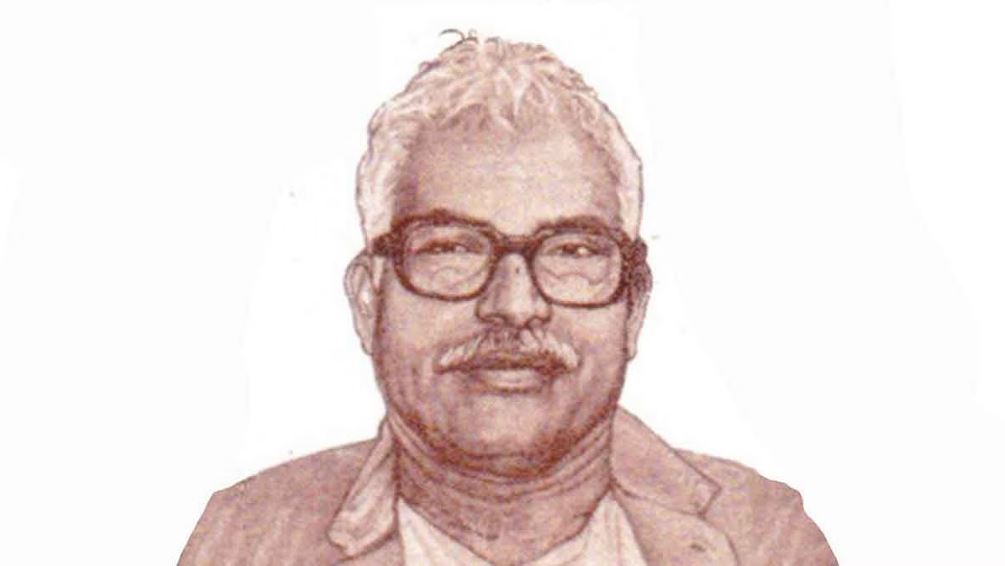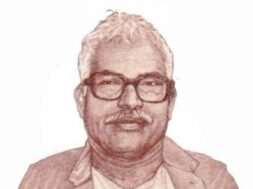
Lalu, Nitish restricted Karpoori Thakur’s legacy. He was Bihar’s Ambedkar
(Guru Prakash)
The year was 1938 in the remote village of Pittaunjhia, now renamed Karpoorigram, in Bihar’s Samastipur district. An elated father went to the local landlord Bacha Singh and announced that his son had passed the matriculation with first division. “Chalo theek hai gor dabao—okay fine, come and massage my legs,” said Bacha Singh. The father was a barber by profession and came from a socially marginalised community. Ram Nath Thakur, Member of Parliament and son of Karpoori Thakur, has recalled this incident from his father’s life on multiple occasions. The incident left a significant impact on Thakur’s thought process as he went on to chart a new wave of social justice in the country after Ambedkar.
The Narendra Modi government has recognised this and posthumously conferred the two-time Bihar chief minister with the Bharat Ratna. The announcement came on Tuesday, a day before his birth centenary.
Even after Ambedkar’s warning on the eve of the adoption of the Constitution of India on the dangers of placing caste and creed above the country, our society is still in the gradual process of recovery from the inhuman depths of feudalism and hierarchy. The self-declared followers of Thakur like Lalu Prasad and Nitish Kumar have sadly restricted Thakur’s legacy to the symbolic optics of birth and death anniversaries.
For Bihar and especially for those who have been at the receiving end of the oppressive social structure, Thakur, born on 24 January 1924, was the second Ambedkar. Surendra Kishore, senior journalist and a keen observer of Bihar, recalled how in a meeting in New Delhi, Janata Party president Chandrashekhar had to collect money from party leaders to buy a new kurta for Thakur. More often than not, the ones he wore were worn out. To which Thakur replied that if there were more funds, he would donate it to the party.
It offers both a lesson and opportunity for the likes of Bihar deputy chief minister Tejashwi Yadav in whose name there is a bungalow worth more than Rs 150 crore in Delhi’s posh New Friends Colony. Targeting agencies in the name of social justice has to be the biggest disservice to Karpoori Thakur’s legacy.
Yashwant Sinha, in his autobiography Relentless, has also made interesting observations on Thakur and probity in public life from his days in the bureaucracy. At the time, Thakur was chief minister of Bihar and Sinha was serving as his principal secretary. During one of his visits to Thakur’s village, Sinha noticed how tough it was for the CM’s wife to arrange a cup of tea for him as there was no milk and tea leaves readily available.
- Reservation pioneer
The currency of integrity in public life has been one of the crucial pillars of Indian politics. The so-called custodians of the marginalised sections—from Bihar, Jharkhand, and Uttar Pradesh to Tamil Nadu and Maharashtra—are facing legitimate corruption charges. Questions will be raised on the intentions of these politicians who have only leveraged Thakur and Ram Manohar Lohia for votes.
As we celebrate Thakur on his birth centenary, it is imperative to recall the struggles and contributions of the man who shaped the political discourse around caste that is relevant even today. Prime Minister Modi, during one of his campaign visits to Bihar in April 2014, posted on X, “Urged people of Bihar to bless NDA, which will fulfil dreams of Shri Karpoori Thakur & bring a change in lives of the poor & marginalised.”
Almost ten years down the line, the politics of the poor and the marginalised has certainly acquired newer dimensions and even innovative vocabulary. In his first speech on the floor of the parliament, PM Modi announced that his government will be committed to the cause of the Garib, Vanchit, Shoshit and Peedit (poor, deprived, oppressed, and suffering). There is an alignment of interest between the ideas of Deendayal Upadhyaya and Thakur; both of them focussed on the last person in the line. Upadhyaya through the notion of Antyodaya and Thakur through the sub-categorisation of reservation.
While October 1977 is monumental in the history of reservation, it is often overlooked. This was the first time reservation was sub-categorised within the Other Backward Classes (OBCs), paving the way for the empowerment of the less privileged among them through the provision of Extremely Backward Classes (EBCs). This policy was ahead of its time as it also created a preferential treatment mechanism for women from backward communities.
Concentration of power
Leadership from the opposition alliance, especially the likes of Nitish Kumar and Lalu Prasad, is committing a fundamental mistake by solely relying on the idea of caste census. The caste survey report by the Bihar government is a reflection of their respective communities’ record in share of power and resources. They have ruled Bihar for the last three decades but the socio-economic status of the marginalised sections remains unchanged since 1990.
Rashtriya Janata Dal has rarely promoted leadership from beyond the family; as of now, the party’s president is Tejashwi Yadav, his mother Rabri Devi is the leader in the legislative council, his brother Tej Pratap Yadav is the minister for environment, his sister Misa Bharti is the Rajya Sabha MP, and the father-patron Lalu Prasad is the de-facto chief of the party.
Even among the Yadav community, they failed to cultivate leadership; Hukumdev Narayan Yadav, Anoop Yadav, and Ram Kripal Yadav had to finally leave the Lalu camp.
Janata Dal (United) head Nitish Kumar and his insecurities are a matter of public knowledge—his lust for power made him betray the likes of George Fernandes, Digvijaya Singh, Jaya Jaitly, Sharad Yadav, RCP Singh, and now Lalan Singh. As far as the share in resources is concerned, the ministries between the CM and deputy CM cover more than 60 per cent of the state budget. So, effectively, two castes and two individuals are benefitting in the name of social justice and caste census.
On the contrary, PM Modi is working towards realising Thakur’s unfulfilled aspirations as promised in 2014; the Bharat Ratna is further proof. A closer look at the PM Vishwakarma scheme shows his vision for the EBCs. As an EBC himself, he is aware of the issues and challenges that entail the life of a person from a marginalised community.
When Karpoori took the oath as CM for the first time, a slogan emerged that asked him to leave his chair and return to being a barber: “Karpoori Karpoora, Chhod Kursi, Pakad Ustura”. Sadly the use of such words by the feudal elite in the political establishment for PM Modi and Droupadi Murmu, the first-ever tribal woman at the highest constitutional office in the country, is a reflection of the vestiges of the social hierarchy.
Regardless, the focus and commitment to inclusion and diversity in the last few years—like the inclusion of the African Union at the G20—have given India a special place in the comity of nations.
Guru Prakash is the national spokesperson of BJP and Assistant Professor at Patna University. He tweets @IGuruPrakash. Views are personal.













